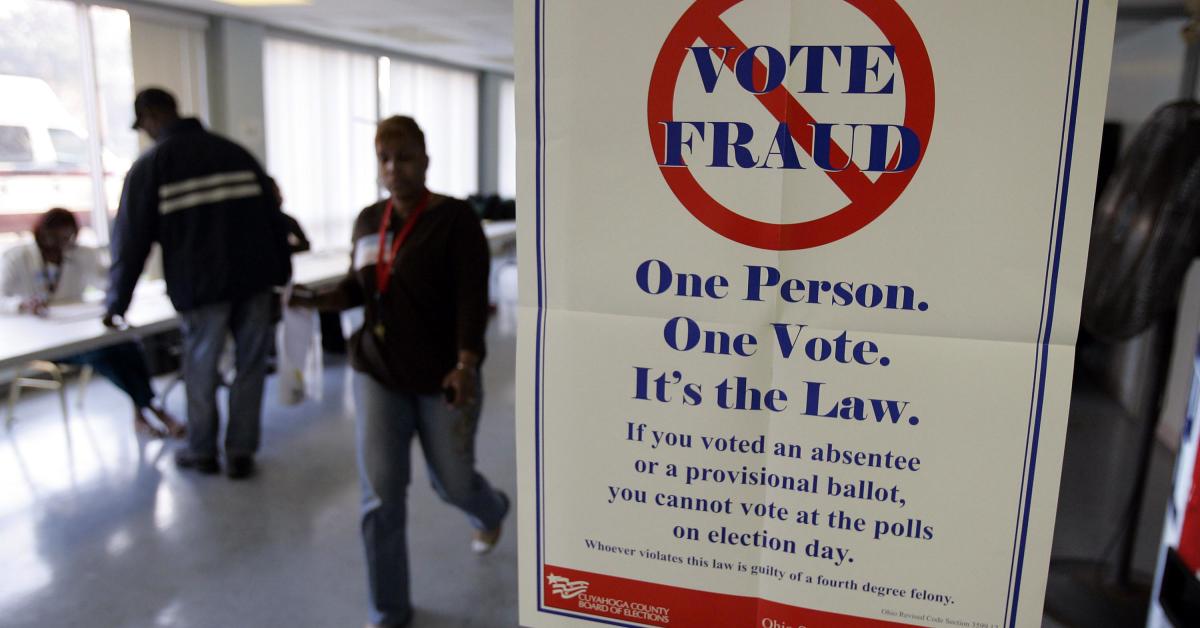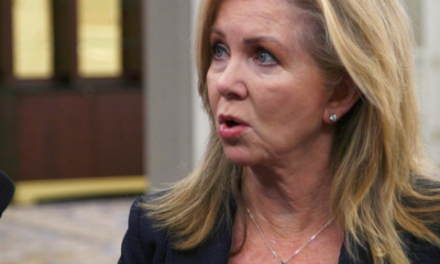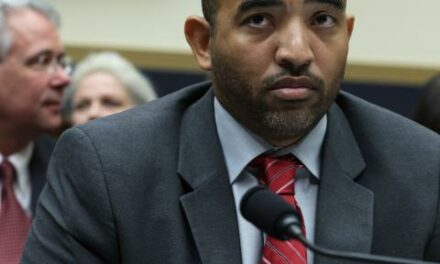We support our Publishers and Content Creators. You can view this story on their website by CLICKING HERE.

A sizeable number of Democrats have downplayed concerns over non-citizens voting, while more states find thousands of them registered to vote ahead of the November presidential election.
As Republicans have attempted to pass a bill through Congress ensuring that only U.S. citizens vote in federal elections, Democrats have pushed back, claiming that non-citizens are already prohibited from voting in U.S. elections. However, states have continued to find non-citizens on their voter rolls, and some who may have have voted in federal elections, after being registered to vote through the motor vehicles department.
While non-citizens are prohibited from voting in federal, state, and most local elections, municipalities in California, Maryland, and Vermont, and Washington, D.C., allow non-citizens to vote in local elections.
Thousands of non-citizen voters have been discovered on voter rolls this year. Alabama, Arizona, Colorado, Florida, Louisiana, North Dakota, and Ohio have all included language in their state constitutions that prohibits non-citizen voting.
Meanwhile, Iowa, Idaho, Kentucky, Missouri, North Carolina, Oklahoma, South Carolina, and Wisconsin all have constitutional amendment ballot measures for voters to decide in the November general election whether non-citizens should be prohibited from voting in state elections.
In July, the House of Representatives passed the Safeguard American Voter Eligibility (SAVE) Act, which would amend the 1993 National Voter Registration Act (NVRA) – also called the “motor voter” law – to make states require documentation of a person’s citizenship before registering to vote in federal elections and ensure states to remove non-citizens from their voter rolls.
Only five House Democrats voted in favor of the bill. The bill has sat in the Senate since July, without a referral to any committees.
House Republicans attempted to pass the SAVE Act again last week with a continuing resolution to fund the government and avoid a shutdown, but it failed with 14 Republicans voting against it. The SAVE Act was attached to the continuing resolution to help ensure its passage in the Senate.
A new continuing resolution was unveiled by House Speaker Mike Johnson, R-La., on Sunday that doesn’t include the SAVE Act.
Earlier this month, Rep. Jennifer McClellan, D-Va., criticized Republicans pushing the SAVE Act, comparing it to poll taxes from the Jim Crow era, The Hill reported. She said the documents required to prove citizenship “just happen to be the ones that cost money.”
“I am not voting for a modern poll tax just so that they can say they’ve done something to keep noncitizen voters from doing something that is already illegal, punishable by up to five years in federal prison, and that there’s very little evidence [it’s] a widespread problem,” McClellan said.
House Minority Leader Hakeem Jeffries, D-N.Y., also came out against the combined SAVE Act and continuing resolution, according to The Hill.
“Current law is very clear: What is so complicated about the fact that only citizens, under the United States Constitution and federal law, are permitted to vote in federal elections?” Jeffries said.
Ahead of the SAVE Act’s passage in July, the Biden administration released a policy statement in opposition to the House bill.
“The Administration strongly opposes H.R. 8281, the Safeguard American Voter Eligibility Act. It is already illegal for noncitizens to vote in Federal elections – it is a Federal crime punishable by prison and fines,” the White House wrote.
“The alleged justification for this bill is based on easily disproven falsehoods. Additionally, making a false claim of citizenship or unlawfully voting in an election is punishable by removal from the United States and a permanent bar to admission. States already have effective safeguards in place to verify voters’ eligibility and maintain the accuracy of voter rolls.”
Also before the July vote, the office of House Minority Whip Katherine Clark, D- Mass., whose duties include recommending how rank-and-file conference members should vote on bills, urged colleagues to “VOTE NO” on the SAVE Act.
“As we’ve seen a number of times this Congress, House Republicans continue to irresponsibly call into question the credibility of our elections,” the statement reads. “Despite numerous recounts, challenges in court, and deep-dives by conservative think-tanks, there has been zero evidence of the widespread fraud that this bill purports to target. It is already illegal under current law for non-citizens to register to vote or to vote in federal elections.”
While Democrats have pushed back on concerns of non-citizens voting, the Department of Justice has charged one for illegally voting in multiple elections.
Earlier this month, an illegal immigrant agreed to plead guilty to charges of having stolen a U.S. citizen’s identity to illegally vote in multiple U.S. elections and illegally obtain a passport, according to the Justice Department. That illegal immigrant registered to vote in Alabama in 2016 and voted in the 2016 and 2020 primary and general elections.
Meanwhile, several states have found thousands of non-citizens on their voter rolls.
Oregon
Oregon removed more than 1,200 voters this month from state voter rolls who were registered to vote without proof of U.S. citizenship due to errors made by the motor vehicles department.
The Oregon Driver and Motor Vehicle Services Division and the Oregon Secretary of State identified 1,259 people in the state who were registered to vote without providing proof of citizenship due to an error between the DMV and the Elections Division of the secretary of state’s office.
There were nine ineligible voters who had cast ballots.
The error occurred with Oregon’s automatic voter registration system. The DMV transfers customers’ data to the secretary of state’s office’s Elections Division if they have provided proof of U.S. citizenship. Once the Elections Division receives the data, the customers are registered to vote.
Iowa
Iowa Attorney General Brenna Bird (R) has charged a non-citizen with illegally voting in a July city council election.
The non-citizen, Jorge Oscar Sanchez-Vasquez, a 42-year-old from Marshalltown, was arrested Wednesday and charged with two counts of election misconduct, according to the attorney general’s office. He resides in the U.S. legally but is ineligible to vote.
Bird’s office announced Friday that Sanchez-Vasquez faces charges for registering to vote and illegally doing so on July 16 in a Marshalltown City Council special election.
Pennsylvania
J. Christian Adams, president of the Public Interest Legal Foundation (PILF), said on a Just the News special report with The Association of Mature American Citizens on Tuesday that non-citizens had been registered to vote in Pennsylvania for decades.
“Pennsylvania had been registering non-citizens, by admission – this wasn’t some conspiracy on the internet – and they admitted they had been registering non-citizens for 20 years at PennDOT, and it was a glitch, they called it,” Adams said.
In 2017, Pennsylvania Secretary of State Al Schmidt, a Republican who was a Philadelphia city commissioner at the time, told a Pennsylvania Senate committee that there were over 100,000 matches of voter registration records to state driver’s license numbers with Immigration and Naturalization Service indicators.
The matches don’t mean that all of those people were registered to vote, but Schmidt argued: “We’re not talking about an insignificant number here. We’re talking about a potentially very significant number of thousands and tens of thousands.”
The Pennsylvania Department of State announced in September 2017 that records indicated 1,160 non-citizens since 1972 had requested their voter registrations be canceled.
California
Meanwhile, in California, PILF filed a federal lawsuit in February against the Alameda County Registrar of Voters for allegedly violating the NVRA by not disclosing records of foreign nationals registering to vote and voting for more than 20 years.
Non-citizens have been placed on voter rolls through motor vehicle departments by lying about their citizenship, Adams also alleged in the Tuesday special report.
“[W]e’ve collected over the years of the data on how non-citizens get in, and it’s largely by not telling the truth in the motor voter process. And it includes people here on green cards, people here legally,” Adams said.
However, sometimes, non-citizens still get on states’ voter rolls despite explaining their citizenship status.
“People get registered to vote when they tell, on their voter registration form, the election officials, that they are not a citizen,” Adams added.
“We have hundreds where they actually mark on the form, ‘hello, not a citizen,’ and they still get registered to vote,” he explained.
PILF obtained voter registration forms from New Jersey and San Diego County, Calif., that show non-citizens declared their lack of U.S. citizenship but were still registered to vote.
PILF non-citizens voter rolls.pdf
Lauren Bis, PILF director of Communications and Engagement, told Just the News in February that most of the non-citizen voters self-reported casting ballots, since they must do so when going through the naturalization process to become a U.S. citizen.
The second most common way for non-citizens to get onto voter rolls is third-party registration drives by nonprofits, Adams previously told the “Just the News, No Noise” TV show.
Arizona
Last week, Arizona Secretary of State Adrian Fontes (D) said that nearly 98,000 voters were incorrectly registered in the state as providing proof of U.S. citizenship, even though in fact they had not done so.
Fontes explained that there was an error in state systems that labeled the roughly 98,000 voters as providing documented proof of U.S. citizenship, Votebeat reported. The Motor Vehicle Division provides the state’s voter registration system with driver’s license information, and the error occurred in that process. Affected voters had first obtained Arizona driver’s licenses before October 1996 and were issued duplicate replacements before registering to vote after 2004, Fontes said.
The error has occurred for about 20 years and over four administrations, he noted, and was discovered by a Maricopa County worker who found a registered voter who hadn’t provided proof of U.S. citizenship but was listed as a voter who could cast ballots in both federal and state elections. The voter had a green card but never cast a ballot, Fontes said.
The Arizona Supreme Court on Friday determined that the nearly 98,000 voters who had not proven their citizenship nonetheless may vote in the November elections.
Texas
Last month, Texas Gov. Greg Abbott (R) announced that more than 1 million ineligible voters have been removed from voter rolls since 2021. Of those, more than 6,500 non-citizens were found, and about 1,930 of them have voted. The records of those 1,930 voters are in the process of being sent to the attorney general’s office from the secretary of state’s office for investigation.
Ohio
In May, Ohio Secretary of State Frank LaRose (R) directed all 88 counties to begin a removal process for non-citizens on Ohio’s voter rolls following a review by his office’s Public Integrity Division and Office of Data Analytics and Archives. The review analyzed data from the Ohio Bureau of Motor Vehicles and found 137 voter registrations of non-citizens who had twice confirmed their lack of U.S. citizenship.
In August, LaRose directed county election officials Thursday to remove another 499 non-citizens registered to vote from the state’s voter rolls.
Illinois and elsewhere
According to a PILF report from May 2023, Chicago records show that 394 foreign nationals were removed from the city’s voter rolls since 2007, with 20 of them recorded as casting 85 ballots.
In April 2023, PILF reported that Maricopa County, Ariz., records showed that since 2015, 222 foreign nationals were removed from the county’s voter rolls, with nine of them recorded as casting 12 ballots across four federal elections.
According to a February report by PILF, Pima County has removed 186 non-citizens from its voter rolls since 2021, with the majority of those registered to vote through third parties.
Of the 186 non-citizen voters in Pima County, seven cast ballots across two federal and local elections. A total of 120 of the records, or approximately 65%, “came from ‘political parties and group drives,’” according to the information given to PILF by Pima County. The county data didn’t include which third-party drives registered the non-citizens.
The year with the greatest amount of non-citizen voter records created in Pima County was 2022 at 132. The midterm election year of 2022 also had the highest number of non-citizen voters who cast ballots in the county, which was six in total during the general election.
Another PILF report noted that ahead of the 2014 midterm elections, North Carolina found that 1,454 individuals on state voter rolls were not naturalized U.S. citizens. Of those, 89 registrants appeared at polling places, 24 of which were challenged, with 11 of the challenges sustained.

 Conservative
Conservative  Search
Search Trending
Trending Current News
Current News 





